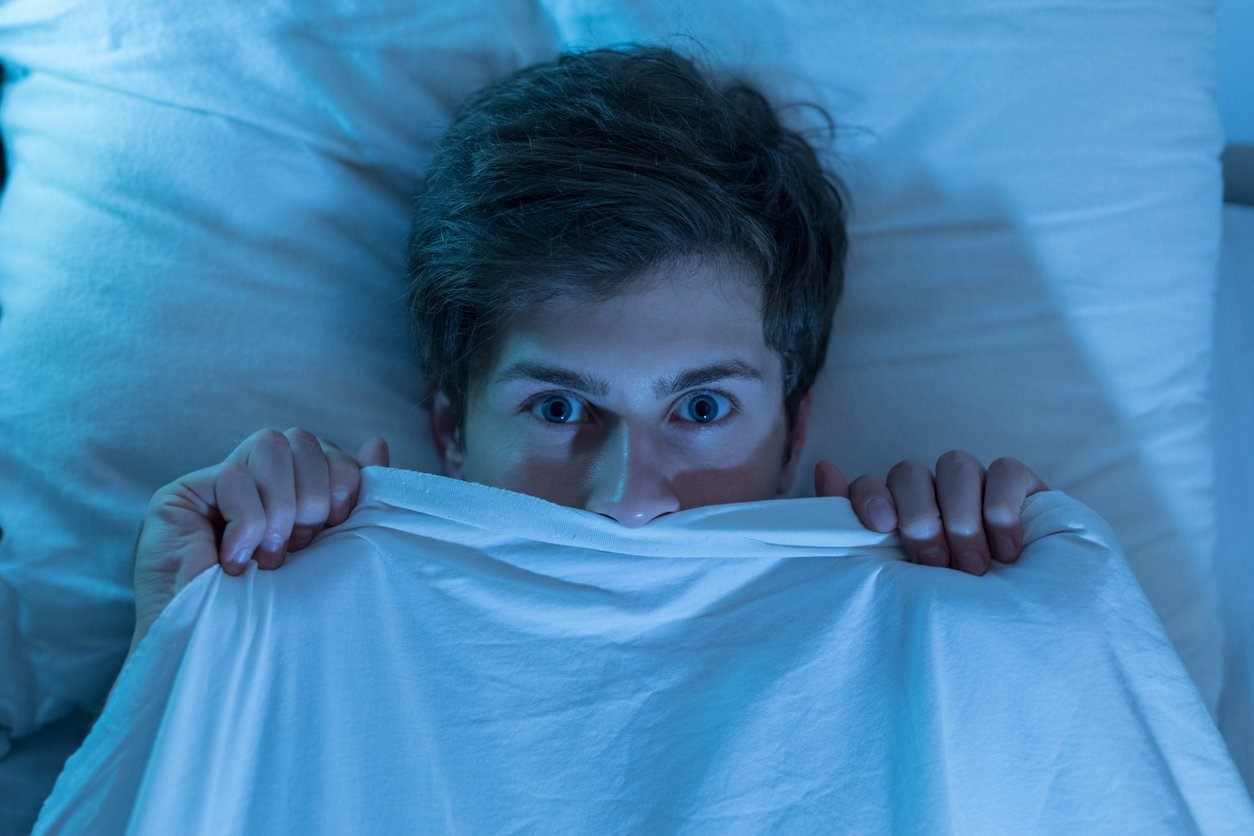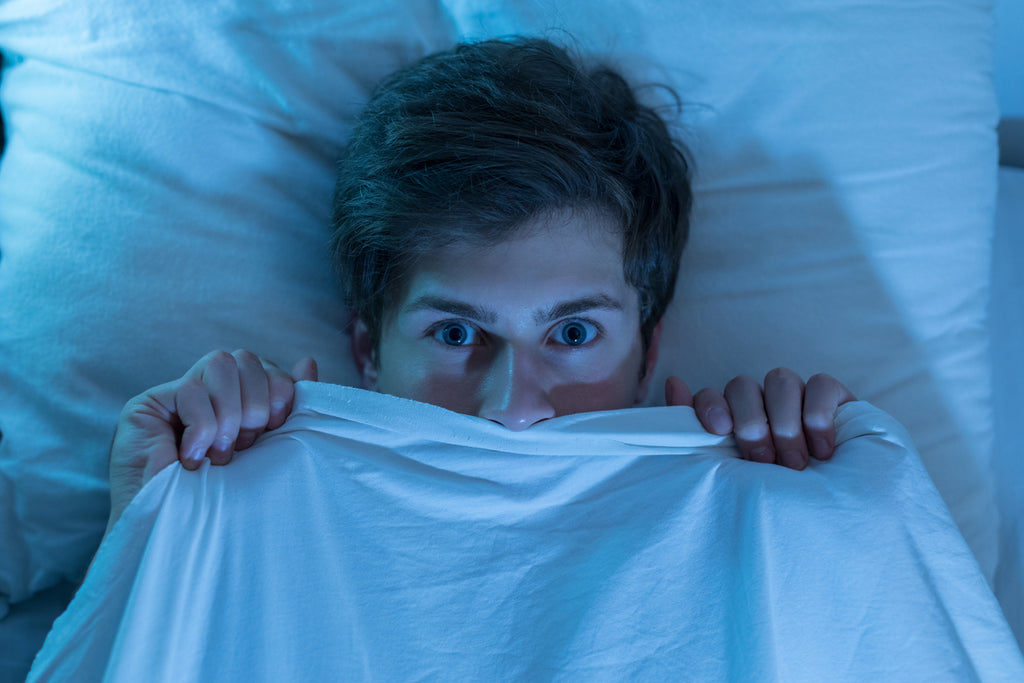Health and Sleep: What is Sleep Paralysis and Why Does it Occur?


We all need sufficient and high quality sleep as part of a healthy life. Not only do we not look or function our best when our sleep suffers, but inadequate sleep also may contribute to heart disease, diabetes, weight gain, depression and anxiety, and cognitive functions.
A Harvard study revealed that adequate sleep represents an essential tenet of our health and subsequently improves our lives. Consider their findings:
- Quality sleep helps prevent and fight heart disease.
- Adequate sleep improves cognitive function and may help prevent degenerative cognitive diseases.
- The right amount of sleep helps combat stress and depression.
- We need to sleep to drive a car or operate other heavy machinery safely.
Many factors may lead to poor quality sleep, such as stress, overeating, lack of exercise, caffeine, or alcohol too close to bedtime, and a counterproductive bedtime routine.
Sleep disorders, of course, also adversely affect our sleep. Conditions such as sleep apnea, night terrors, and restless leg syndrome may stem from our DNA but worsen with poor lifestyle choices.
Sleep paralysis represents a relatively uncommon disorder that brings about some of the most bizarre symptoms.
What is sleep paralysis?
Sleep paralysis may happen as we fall asleep, but more commonly, as we awaken. It occurs when the sleep stages involving REM and non-REM don't line up appropriately, and the brain and the body don't communicate properly. This conflict with the mind and body leaves the person unable to move or speak for anywhere from a few seconds to several minutes.
Sleep paralysis, often accompanied by hypnagogic jerks, happens as we fall asleep. It falls under the category of predormital sleep paralysis. Postdormital sleep paralysis occurs as we awaken, often resulting in more intense symptoms.
Sometimes pain, pressure, and a sensation of a presence or even a hallucination accompany sleep paralysis. As if the inability to move doesn't represent enough of a scare, these auxiliary symptoms make sleep paralysis downright frightening.
What causes sleep paralysis?
For hundreds of years, many determined the indicators of sleep paralysis pointed to the presence of evil spirits. We know now, of course, no ghosts — evil or otherwise — come into play with this disorder.
Instead, the brain chemicals GABA and glycine cause the feeling of paralysis. Sleep paralysis happens in the rapid eye movement or REM stage of sleep. REM represents the dreaming stage of sleep, and some theorize these chemicals induce temporary paralysis to prevent us from acting out our dreams.
Evidence points to DNA or heredity contributing to sleep paralysis, but several other factors may also cause or contribute to it:
- Lack of sleep sets your body and brain up to confuse its REM and non-REM cycles.
- Leg cramps often awaken people in the middle of a dream, thereby disturbing the REM cycle. The pain and fear of a recurrence also prevent us from falling back to sleep.
- Substance abuse with alcohol and other drugs set the stage for sleep paralysis and other sleep disorders.
- Mental health issues not addressed with the proper medication also contribute to sleep paralysis.
- An inconsistent schedule — such as sleeping five or six hours on work nights and then sleeping 10 hours on the weekends — also promotes sleep paralysis.
- Jet-lag may represent a factor for sleep paralysis victims. Individuals traveling for work and sleeping in hotel rooms increase their risk of sleep paralysis.
Is sleep paralysis dangerous?
Sleep paralysis in and of itself doesn't represent a health threat or danger. Overall, fewer than eight percent of the population suffers from sleep paralysis. Sleep paralysis may occur at any age, but most often happens to young adults.
Many of these people only experience sleep paralysis a few times in their lives, while others face it daily. Those who struggle with external causes such as inadequate sleep or mental health problems experience the condition at a higher percentage. The underlying causes certainly pose more of a danger than the actual sleep paralysis experience.
Though not life-threatening, you should contact a medical professional about your sleep paralysis if it causes stress and concern, you feel exhausted during the day, or it causes insomnia.
Additionally, consider the following steps to prevent or treat sleep paralysis:
- Avoid caffeine late in the day. Also, limit your caffeine to no more than four cups a day. Coffee and cola represent the most common caffeine sources but limit your consumption of energy drinks as well.
- Avoid late-night alcohol consumption. That glass of wine might help you drift off, but may wake you up two hours later.
- Get off the couch and exercise daily. High-powered cardio workouts should take place at least three hours before bedtime.
- Developing a healthy bedtime routine represents a crucial step for a good night's sleep and controlling sleep paralysis. We make sure our kids get their bath, bedtime story, and warm milk before hitting the pillow. We should take similar care of ourselves.
- Read a book before bed instead of watching violent or disturbing television. If you read on a device, make sure you set it to night mode.
- Drink herbal tea with valerian root or chamomile before turning off the lights.
- Do some nighttime yoga or relaxing stretches before bed.
- Take a warm lavender bath with Epsom salts and lavender oil.
- Check out sleep and relaxation apps.
- Consider using essential oils such as lavender in a diffuser or linen spray.
Serious conditions associated with sleep paralysis:
Some of the more health-threatening conditions associated with sleep paralysis not only need attention to treat or prevent sleep paralysis, but also represent conditions that pose a threat to our physical or mental health. You should receive medical care for any of the following:
- Narcolepsy
- Bipolar disorder or other anxiety disorders
- Anxiety caused by abuse — sexual abuse victims often experience sleep paralysis
- Post-traumatic-stress disorder (PTSD)
Narcolepsy, a condition in which you fall asleep suddenly, brings with it more potential danger, especially when it comes to driving or operating machinery.
Make sure to contact your healthcare provider regarding concerns and questions about sleep disorders. For more information on sleep paralysis and other sleep disorders, contact us.




